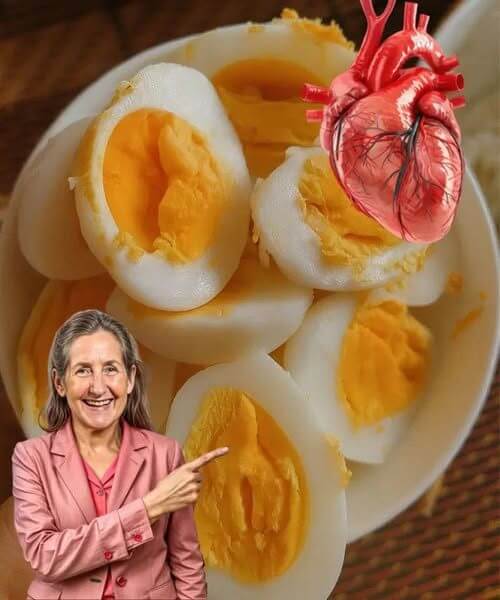Few foods have sparked as much debate as the humble egg. For years, eggs were labeled as dangerous, accused of raising cholesterol and increasing the risk of heart disease. Then, seemingly overnight, they were redeemed and celebrated as a nutrient-packed superfood. No wonder so many people are still confused about whether eating eggs daily is healthy—or risky.
The Egg Debate: From Villain to Superfood
Eggs once carried a bad reputation, but recent research has shifted the narrative. For most healthy people, eggs do not increase the risk of heart disease. Instead, studies show that heart health is more influenced by consuming trans fats, refined carbs, and excessive sugar—not whole foods like eggs.
What Experts Say About Cholesterol
According to Heart UK, cholesterol is a type of fat made mostly by your liver, with only a small portion coming from your diet. It plays a crucial role in the body, supporting your brain, nerves, and skin. About 80% of your cholesterol is naturally produced, while 20% comes from what you eat.
The Cleveland Clinic explains that cholesterol has two main forms:
- HDL (good cholesterol): Helps protect your arteries.
- LDL (bad cholesterol): Can lead to plaque buildup in your arteries, raising the risk of heart problems.
Eggs are indeed high in cholesterol, but they are low in saturated fat—the real culprit that raises LDL cholesterol. Your body also adjusts production when you eat cholesterol, meaning it balances itself out rather than spiking dangerously.
Why Eggs Are a Nutritional Powerhouse
Eggs deliver a wide range of nutrients in just a few bites. They’re rich in high-quality protein and contain all essential amino acids needed to build and repair muscle. They’re also packed with healthy fats, omega-3s, and vitamins such as A, D, E, B12, along with minerals like selenium, phosphorus, and folate. One standout nutrient in eggs is choline, which supports brain function and memory.
Benefits of Eating an Egg (or Two) a Day
- Builds and maintains strong muscles
- Enhances brain health and memory
- Protects eye health
- Keeps you full longer, supporting weight management
- Strengthens the heart and immune system
The Best Way to Eat Eggs
Eggs are incredibly versatile—scrambled, boiled, poached, sunny-side-up, in omelets, salads, or even baked into recipes for extra protein. If possible, choose pasture-raised eggs, as they typically contain higher levels of omega-3s and vitamins compared to conventional eggs.
The Bottom Line
Despite years of controversy, eggs are one of the healthiest, most affordable, and easiest foods you can add to your diet. They’re nutrient-dense, packed with protein and good fats, and can be enjoyed in countless ways. So next time you’re planning breakfast, don’t overthink it—crack an egg and enjoy the benefits.
